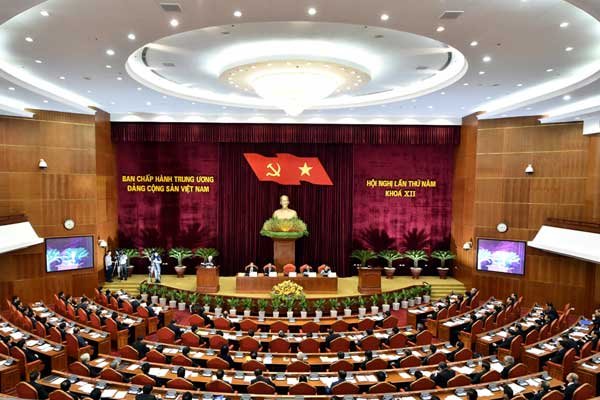
SOEs need further restructuring
The weaknesses of SOEs have long been pointed out but the State sector has yet to get out of the woods even though many tenures of the Party Central Committee have passed, he said.
At the opening of the 5th plenum of the 12th Party Central Committee last Friday, the Party chief described the restructuring, renovating and improving SOEs as a tough and complicated issue.
The Party and the State have taken a slew of policy steps to restructure SOEs and pivotal results have been achieved, with the number of enterprises wholly owned by the State falling from more than 12,000 to 5,655 in 2001 and only 718 in October 2016.
He however said SOEs had not fulfilled their role as the leading force of the State economy; they have yet to take the lead in the economy and create a driving force for economic development. A number of SOEs have made huge losses as many of their projects worth trillions of Vietnam dong have ground to a halt, thus causing huge bad debt, making public debt worse, and stoking public frustration.
“The weaknesses of SOEs have been long pointed out but why has the situation improved slowly after many terms (of the Party Central Committee) or even got worse?” he said.
Corporate governance at SOEs has been slowly changed to international standards, he said, adding institutions for management, inspection and supervision of investment and finance at SOEs, especially credit guarantees, and evaluation of land, and tangible and intangible assets, are still inadequate.
The current mechanism for managing and supervising agencies and individuals tasked with overseeing State capital at SOEs has been easily taken advantage of for personal gains.
The General Secretary requested the central Government to thoroughly look into the concept and role of SOEs at a time when SOE equitization is being stepped up and when enterprises with 100% State ownership are selling State shares; and restructure SOEs.
A plan should be devised to change the way Party committees are organized and operated and personnel planning is done at SOEs. He underscored the need to issue a resolution on continued restructuring, renovation and improvement of SOEs.
Socialist-oriented market economy institutions need improving
The implementation of a resolution adopted at the 6th Plenum of the 10th Party Central Committee to perfect the socialist-oriented market economy has in the past 10 years played an important part in maintaining high economic growth, the Party chief said. Vietnam has become a lower middle-income country.
But many limitations and weaknesses remain to be solved. Economic growth has been lower than expected and no major breakthroughs have been made to mobilize, allocate and utilize resources for development.
SOEs have been unable to maintain the lead role in the economy while the collective economy has been as weak as ever. The private sector has not grown as swiftly, sustainably and healthily as hoped. The General Secretary emphasized that at this plenum, the Party Central Committee will have to adopt a resolution pushing for a continued improvement of the socialist-oriented market economy from now to 2020, with a vision to 2030.
Stepping up private sector development
General Secretary Trong said the Party and the State have over the past 15 years issued policies and taken measures to prop up the private sector. The role of the private sector in the socialist-oriented market economy and the international integration process has been recognized.
The private sector has been contributing greatly to mobilizing public resources for investment, fueling economic growth, spurring economic restructuring, increasing State budget revenues, creating jobs, improving people’s lives, and solving social problems.
The share of the private sector in GDP has been maintained at a staggering 39-40%. A number of major privately-held business groups have emerged in various sectors and have been able to compete on domestic and international markets.
However, private sector growth has been in decline in recent years. The starting point of the private sector is low and a majority of private firms are small and grappling with outdated technology, slow innovation, poor governance, limited finances, low labor productivity, poor efficiency, and low product quality and competitiveness.
Trong proposed the plenum figure out objectives, tasks and solutions to spur private sector development and make this sector an important driving force of the socialist-oriented market economy.
Some senior officials face discipline
The plenum will discuss many important issues, including disciplinary actions against a couple of senior officials.
The Party Central Committee’s Inspection Commission on April 27 proposed the Politburo and the Party Central Committee discipline Politburo member and HCMC Party Committee Secretary Dinh La Thang. According to the Inspection Commission, Thang should be held accountable for wrongdoing and irregularities which were committed in 2009-2011 by the standing board of the Party committee and the board of Vietnam National Oil and Gas Group (PVN) while he was serving as Party chief at the State-owned group.